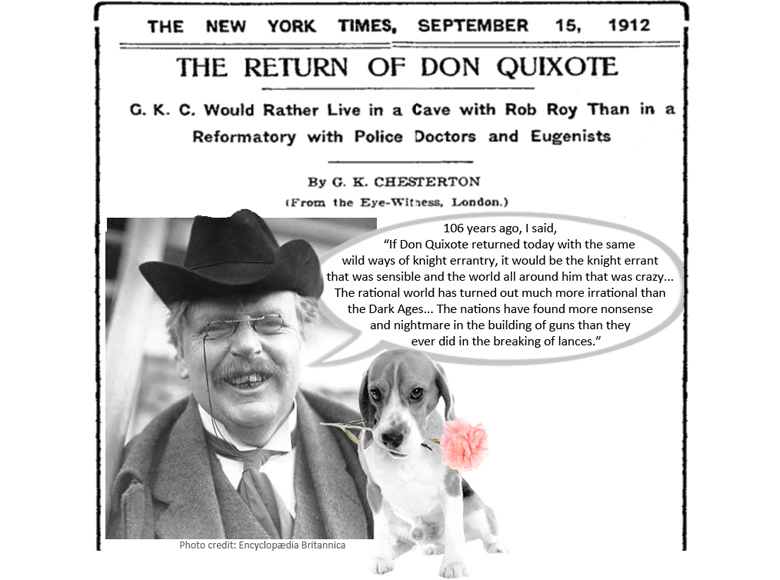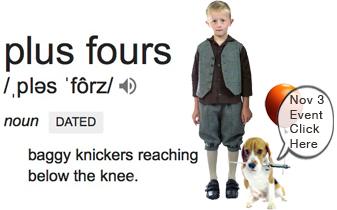“Facts tell, stories sell,” is a principle known to every top-tier ad writer.
Stories change people while statistics give them something to argue about.
People remember stories long after bullet-points are forgotten.
Tom Robbins said, “I mean we are all, as human beings, caught up in a web of narration, this great narrative web, and we have always defined ourselves, human beings, through narration, through stories.”
In his final speech to broadcasters on March 8, 2003, Paul Harvey said,
“And should you visit my skyscraper offices in Chicago – and you’re always welcome – your attention will focus first on a large portrait on the reception room wall. It’s a portrait of a young boy. His clothing dates itself to a generation past, the plus-fours are wretchedly wrinkled, the misshapen shoes are worn out. One of them is worn through. But the boy, leaning forward on one elbow, is listening enrapt to a 1930s-vintage cathedral-shaped, multi-dial radio. The boy does not resemble any person in particular, except to me. The artist is an Oklahoman named Jim Daly, whom I have never met, but with his painting he included this note. He said, ‘There is no way for me to express the pleasure I received from listening to the old radio programs. In my mind, those wonderful heroes were magnificent. No movie, no television program, not even real-life could have equated what my imagination could conjure up. Amazingly, all of those heroes’ he says, ‘looked a bit like me… And all of those heroes,’ he described, ‘looked a bit like me.'”
The first American census was taken in 1790, fourteen years after the nation declared its independence from Britain; 3,893,635 persons were in that final count, which included 694,280 slaves. In other words, the total population of the United States was slightly smaller than today’s metropolitan Atlanta, slightly bigger than modern Detroit.
1790 was just 228 years ago. Only 6 or 7 generations.
I could say, “America became America because of the stories we told ourselves,” but that might lead you to believe that America has become what it will always be. But the new and different stories we are telling ourselves today are reshaping us, making us a different America.
We become what we tell ourselves.
“Those who tell the stories hold the power in society. Today television tells most of the stories to most of the people, most of the time.” – George Gerbner
“Whether you read a newspaper, watch TV or follow the news online, only 14 percent of the stories you hear about were developed by journalists defining an issue and pursuing it. A staggering 86 percent of the stories were fed to broadcasters by official sources and press releases. In 1960 the PR agent-to-journalist ratio operating in the US was 0.75 to 1. Today the ratio is 5 to 1.” – John Nichols and Robert W. McChesney, The Death and Life of American Journalism
Paul Harvey concluded his speech in 2003 by saying,
“Isn’t it a shame that with noisy, distressing, depressing news hour after hour, day-in and day-out; by our emphasis on all of the bad things, crime and inflation and pollution and floods and fires and discord and discontent; by our persistent preoccupation with negatives, we tend to un-sell ourselves and our children on a way of life which in fact is the envy of the rest of the world. And that repetition is effective. I tell you, repetition is effective. Repetition is effective.”
You and I speak a world into existence every day.
And the kind of world we create
Depends only
On the kinds of stories
We tell.
Roy H. Williams
“The truth you believe in and cling to makes you unavailable to hear anything new.”
— Pema Chödrön
 Valuable life lessons can be learned by playing chess? Indeed! Elliott Neff, a United States Chess Federation National Master, is helping young people learn the game of life through the game of chess. Elliott’s just-released novel, A Pawn’s Journey, teaches sportsmanship, decision-making, patience, planning, and how to learn from mistakes. Listen and learn as Elliott’s insights about life and business are pitted against the inquisitive skills of our own roving reporter Rotbart in a match of strategy, intellect, and forethought at MondayMorningRadio.com
Valuable life lessons can be learned by playing chess? Indeed! Elliott Neff, a United States Chess Federation National Master, is helping young people learn the game of life through the game of chess. Elliott’s just-released novel, A Pawn’s Journey, teaches sportsmanship, decision-making, patience, planning, and how to learn from mistakes. Listen and learn as Elliott’s insights about life and business are pitted against the inquisitive skills of our own roving reporter Rotbart in a match of strategy, intellect, and forethought at MondayMorningRadio.com

